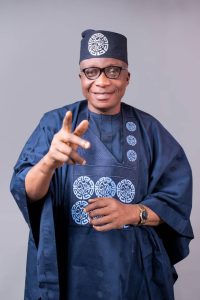An excursion to life and living in Ondo State
By Sola Ebiseni
BY some intuition in my early years and from elementary school, I found myself fascinated by history yet paradoxically determined not to have anything to do with History as a course of study. At secondary school level, the Arts readily became my choice as fear of Mathematics, perhaps by its impatient teacher, schemed me out of the Sciences. Government and History were alternatives, I chose the former.
My Chi, according to the Igbo worldview, must have been laughing at me as I found myself asking questions about my existence and environment, how my grandparents and their children, including my father and all his siblings and other Ilaje people, wandered through lagoons and rivers to Ado-Odo Ogun State where aIl their children were born and why they and other people of Apoi and Arogbo Ijaw tribes preferred not the main town but the most hazardous bank of the Yewa River for settlement.
Even as I left the village for Ibadan as early as 14, curiosity about who I am stuck with me as I wouldn’t stop ruminating over the stories told us by my grandma who had virtually made a song of her ancestry as a princess of the Olugbo of Ugbo and the messages in our family oriki (eulogy) which my grandpa would often want us recite and also always on the lips of our mothers as an irresistible weapon to force the hands of our fathers. And by some coincidence, grandma, I was later told, was the one who named me Nehemiah, the spirit that screws up the love of my nativity, even when, like my biblical namesake, I was born faraway and years later, found myself elected as the Chairman of Ilaje/Ese-Odo Local Government, the Niger Delta portion of Ondo State.
The story of our exploits, starting from the successful struggle for the recognition of Ondo as an oil-producing State and the socioeconomic fallouts, including employment opportunities in the oil industry, membership of oil producing states with its social and developmental benefits are stories for another day.
Suffice it to say, with all sense of modesty that since 1990, the year of our consecration in the political life of the people there are perhaps no meaningful, impactful and enduring socioeconomic-cum-political developments in the Niger Delta portion of Ondo State; we have not been either the champion or visibly an integral part, with the limited powers and opportunities in the offices we are privileged to hold.
We must give kudos to our forebears who either from the cradle at Ile-Ife or other parts of the Niger Delta resisted the vagaries of nature, domesticated it and took possessory rights of their respective portions for posterity. At the advent of Afro-European relationship in Nigeria, our Kings had treaties with the German Chancellor and British Queen in 1884/1885 and second only to Lagos Island of 1861. Western education and Christianity found early roots in the territory with the planting of Saint Mark’s Anglican Church and Primary School at Itebu Elero in 1875; same era Methodism came to Igbobini the Archdiocese of which today covers Ondo, Ekiti, Edo and Delta states.
When the territory was made part of Lagos colony in 1875 and MacGregor as Governor thereof embarked on the tour of the area which took him from the boundary at Langbasa in the west to Oghoye on the coast in the east and upland to Arogbo and returned to the the Apoi and launched through Oluwa and Ofara rivers back to Lagos, he found, in his report in 1903 to the Secretary of State for the Colonies, organised societies everywhere he traversed.
The received British judicial system since the late 1800 has been embraced culminating in the epoch making case over the ownership of Igbokoda between Oba Jubo, the Kalasuwe of Apoi in the present Ese-Odo Local Government and his Ilaje counterpart, Oba Igbaakin Omowole which held at the Provincial Court (now High Court) at Igbekebo in 1917 and affirmed by the supreme court years later in 1999 as the locus classicus in communal land ownership.
Writing in 1936, RJM Cornwell, British colonial officer and author of Ilaje Intelligence Report, bemoaned the absence of infrastructural development commensurate with our early starts which he largely attributed to the difficult riverine terrain. The Christian missions: Anglican, Methodist, Baptist, First African Mission and later the Cherubim and Seraphim Zion movements, filled the gap in education and its infrastructures. Navigating the shallow muddy canal was the greatest hindrance to economic growth. Following the pioneering community efforts at Atijere, Arogbo, Igbotu and Igbokoda, etc., the white garment churches took the lead at Ugbo-Nla, Aiyetoro, Zion Pepe, Orioke Iwamimo, Amapere, Bolowoghu, etc., in providing secondary education and massive reclamation of the muddy environment for enduring structures. Aiyetoro which community was patterned along communism excelled in several respects, including the canalisation and dredging of waterways most needed for all-round socioeconomic emancipation.
This revolution, proped by the elites of the time, some of which are still with us, led to massive dredging of the coastal waterways by successive governments, starting from Military Governor David Ita Ikpeme; but the government of Chief Adekunle Ajasin made all the difference in riverine navigation.
Since the return of democracy, attention has been shifted to roads development. From Adefarati which administration conceived and established the Oil Producing Areas Development Commission, OSOPADEC, planned and opened up the monumental Igbokoda-Aiyetoro Road, and Dr. Olusegun Agagu who made the road and the extension from Alape to Araromi motorable and the Mimiko and Akeredolu governments which paved them with asphalt, these endeavours have contributed immensely to the development of the area traversed with the same effect as the Irele-Ajagba-Agadagba-Obon road to that axis. The Apoi area is more favoured by roads coverage because of its peculiar geography. I have been privileged to be part of it all.
So, in the past weeks we have again traversed the whole area in the course of engaging with the people. The roads earlier spoken about ended at Ugbo-Nla, Ebute-Ipare, Zion-Pepe where the rest of the journey through Abe-Alala, Motoro through Pepe to Lekki-Lagos in the West and Orioke Iwamimo, Abetobo, Aiyetoro , the Obe territories to Awoye where we ended our voyage in the east.
The littoral territorial space with its sailing in high speed boats in the canals parallel to and overlooking the sea which ordinarily presents a beautiful scenery with the boats being tossed so high depending on the capacity of passing boats and volume of water so displaced. However, the canals have lost their depths, width and beauty to the massive silts washed overtime off the muddy shoreline into the canals hindering navigation.
Ebiseni is Secretary General, Afenifere.

